Brazil Learning Route inspires gender transformative programming in 12 countries
31 OCTOBER 2023
The Learning Route that took place from 16 to 22 October 2023 in the northeast of Brazil, organized by the JP GTA and Procasur, has inspired its participants to incorporate gender transformative approaches in projects and organizations upon return to their 12 countries, with a view to improving rural livelihoods.
 The empowerment of rural women is a social and economic priority that has gained increasing attention in recent years. Despite their fundamental role in agrifood systems, rural women often face barriers and discriminatory gender norms that prevent access to productive services and resources, decision-making, and fair visibility and recognition of their work in the field.
The empowerment of rural women is a social and economic priority that has gained increasing attention in recent years. Despite their fundamental role in agrifood systems, rural women often face barriers and discriminatory gender norms that prevent access to productive services and resources, decision-making, and fair visibility and recognition of their work in the field.
In order to address these challenges and scale up sustainable solutions for women in agrifood systems, 21 representatives from government institutions, international development organizations and civil society from 12 countries across Latin America and Africa participated in a Learning Route in Brazil organized by Procasur in the framework of the Joint Programme on Gender Transformative Approaches for Food Security and Nutrition (JP GTA), in collaboration with and through financial support from the European Union.
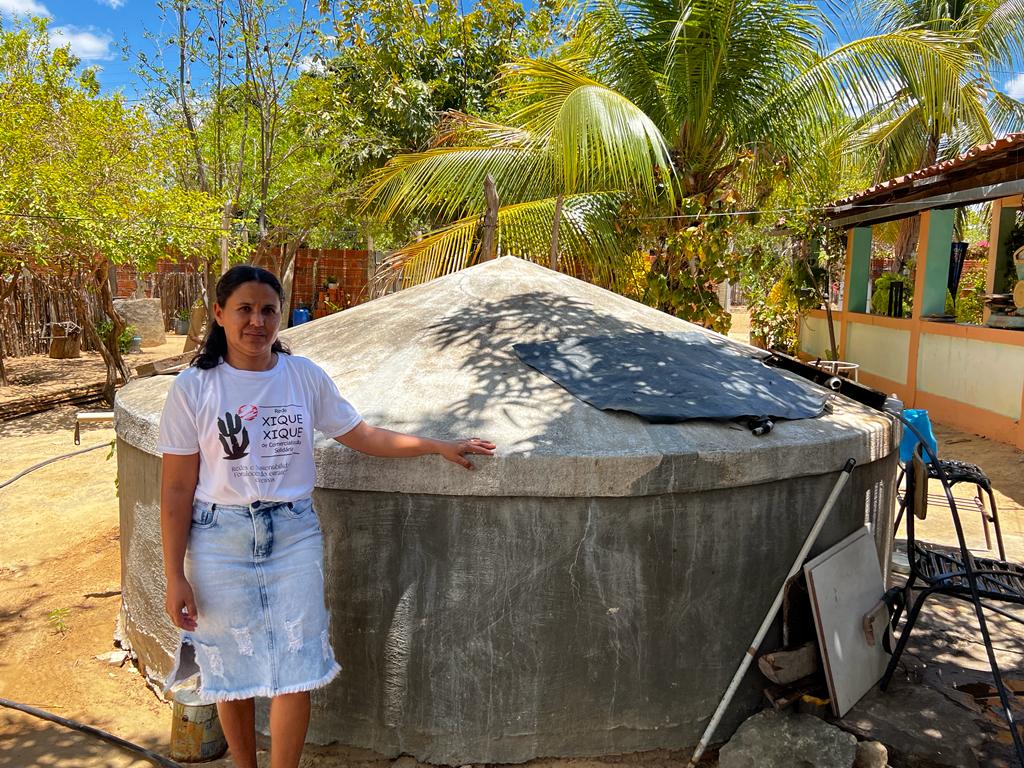 Over the course of six days, participants visited rural communities in the states of Rio Grande Do Norte and Pernambuco in the northeast of Brazil, a region with social and environmental challenges linked to its semi-arid climate. In this region, gender transformative approaches – implemented by rural women with the support of government institutions and civil society organizations, such as Centro Feminista 8 de Março and Casa da Mulher do Nordeste – have improved access to basic services and resources, increased the diversity of their crops and enhanced food security for families.
Over the course of six days, participants visited rural communities in the states of Rio Grande Do Norte and Pernambuco in the northeast of Brazil, a region with social and environmental challenges linked to its semi-arid climate. In this region, gender transformative approaches – implemented by rural women with the support of government institutions and civil society organizations, such as Centro Feminista 8 de Março and Casa da Mulher do Nordeste – have improved access to basic services and resources, increased the diversity of their crops and enhanced food security for families.
For instance, in Mossoró in Rio Grande Do Norte, a group of rural women lead the Rede Xique Xique network for fair marketing in the settlement of Mulunguzinho. They explained the process that proved transformative for them, starting from changes in gender-based discriminatory behaviours that triggered a reorganization of their community. They highlighted the importance of popular education for gender equality, focusing on specific needs such as access to water, the strengthening of women’s self-esteem, and capacity development in sustainable production methods to obtain agroecological certifications.
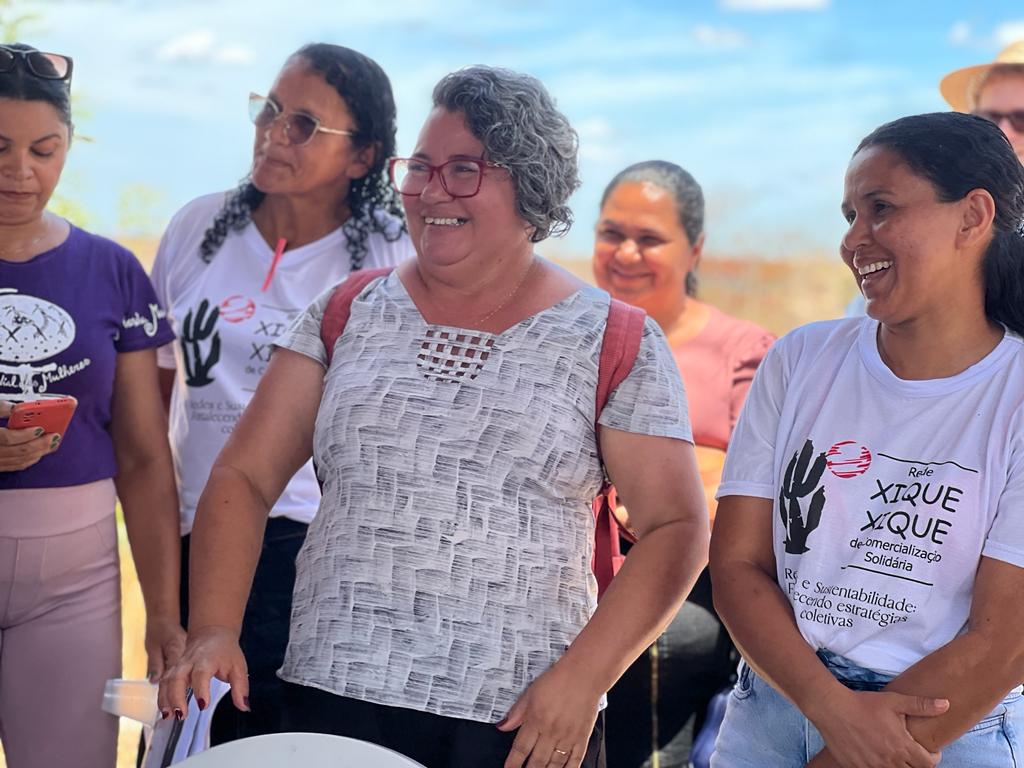 Opportunities for dialogue and collective action have been critical for the people of Mulunguzinho. Together with their fight for gender equality, their group 'Mulheres Decididas a Vencer' has provided input to the development of gender responsive public policies such as the Programa Estadual de Compras da Agricultura Familiar e Economia Solidaria (“State Procurement Programme for Family Farming and Solidarity Economy”), the Programa Nacional de Alimentação Escolar (“National School Feeding Programme”) and the Programa de Aquisiçao de Alimentos Nacional (“National Food Procurement Programme”).
Opportunities for dialogue and collective action have been critical for the people of Mulunguzinho. Together with their fight for gender equality, their group 'Mulheres Decididas a Vencer' has provided input to the development of gender responsive public policies such as the Programa Estadual de Compras da Agricultura Familiar e Economia Solidaria (“State Procurement Programme for Family Farming and Solidarity Economy”), the Programa Nacional de Alimentação Escolar (“National School Feeding Programme”) and the Programa de Aquisiçao de Alimentos Nacional (“National Food Procurement Programme”).
Rede Xique Xique has benefitted from these programmes and has managed to have a regional influence to distribute its products. Neneide Lima, one of the group’s founders, commented: “Before, we worked hard, we had limited access to food and earned very little. Now our most important achievement is to have healthy food and a little extra money for our children’s education.”
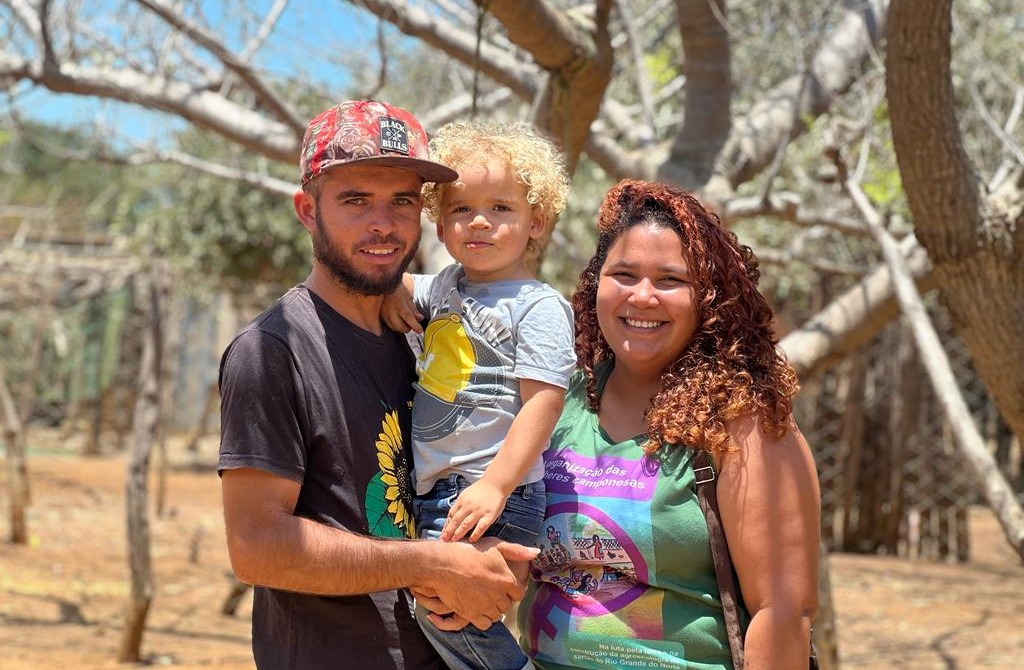
In the city of Governador in Rio Grande Do Norte, the settlement ‘Assentamento Terra de Esperança’ was founded as part of the agrarian reform. Here, the Learning Route highlighted the resilience of the group ‘Grupo de Mulheres Unidas pela Fé’, which enhanced rural women’s access to land tenure. Being owners of their land, together with improved agroecological production, has fostered the sustainability of their collective work that guarantees food security, climate action and good nutrition for their community. In turn, the fair distribution of and value given to domestic and care work in the home between men and women has been key to the development of the community. “It is important to share tasks in the home. When my wife goes out to study, I stay with my son and vice versa,” said Hugo Brito, the husband of one of the group’s leaders.
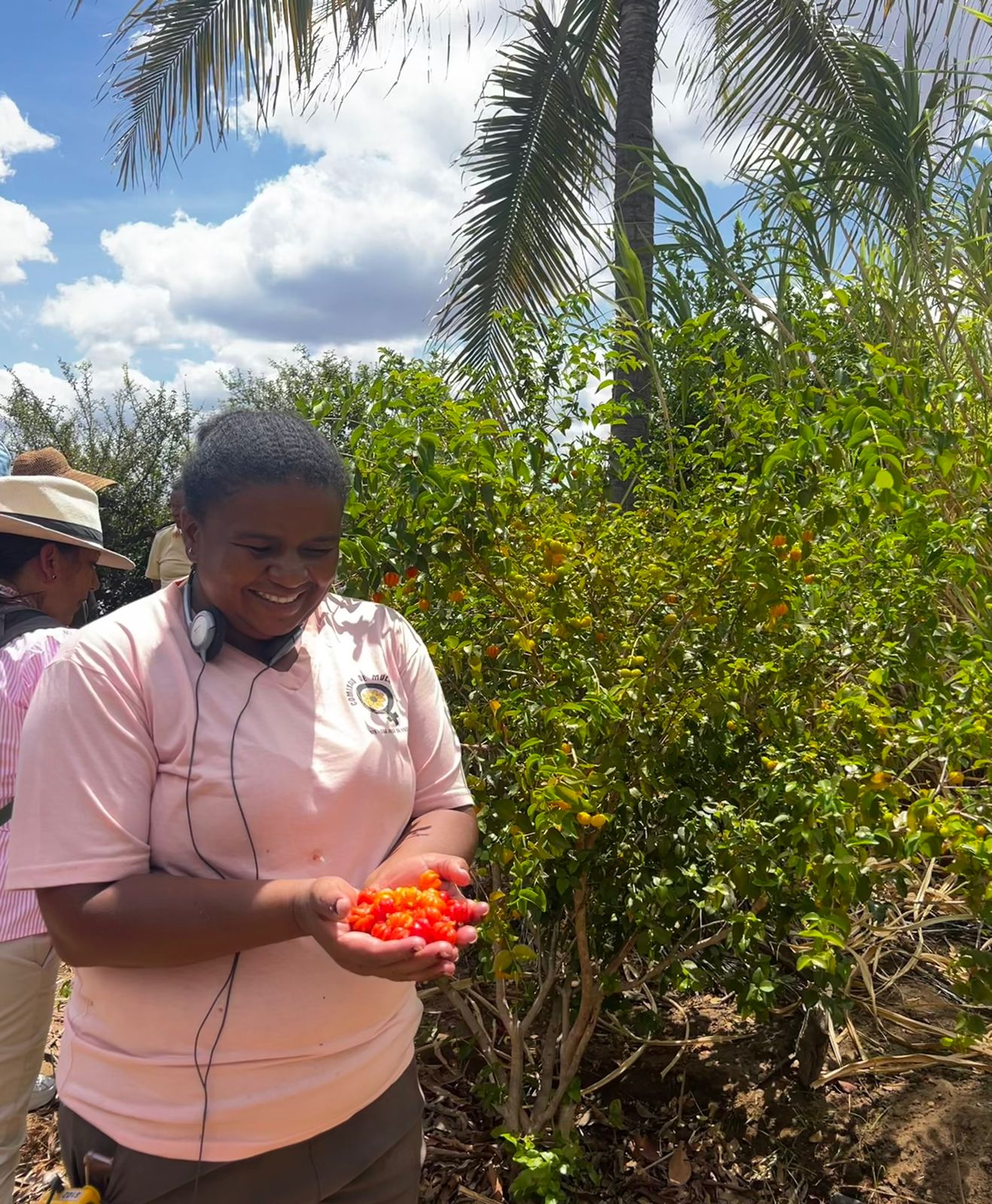
The Learning Route ended in the city of Afogados de Ingazeira in the state of Pernambuco where it visited two groups, ‘Mulheres Sonhadoras do Sertão’ and ‘Associação Mulheres Bom Sucesso’. The groups explained how the methodology of using ‘Agroecological Notebooks’ has improved the visibility and social, economic and environmental value of their work by better organizing their agricultural production and improving the monitoring of their workloads. Lourdes Siqueira from the group ‘Mulheres Sonhadoras do Sertão’ commented: “The booklet makes it evident that my efforts in our vegetable patch generate income for our family and boost my husband’s recognition and support. If a product has a good yield, I increase its production.”
What happens after the Learning Route?
The Learning Route provided an opportunity for participants to reflect on new ideas, and they have now presented their follow-up ‘Innovation Plans’ incorporating gender transformative approaches to improve livelihoods in agriculture in the 12 countries they represent.
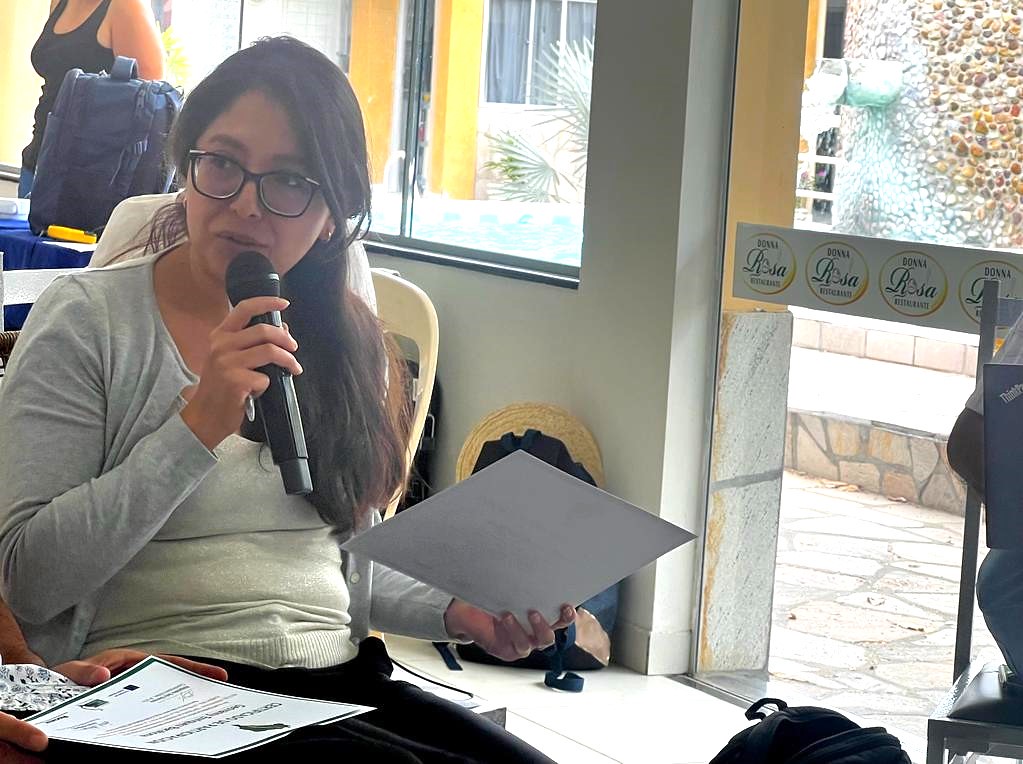
Leidy Vásquez, representative of the Plurinational State of Bolivia, inspired by the lessons learned during the Route, said: “In Bolivia, we have an action plan for the transformation of food systems that seeks to strengthen the traditional agricultural system. We will also work on incorporating a gender transformative approach to highlight the fundamental role of rural women.”
From Mexico, Badi Zarate participated on behalf of the Secretaría de Igualdad Sustantiva enter Mujeres y Hombres (Secretariat of Substantive Equality between Women and Men) in the state of Jalisco. Introducing his Innovation Plan, Badi stated: “The challenge we now face at the global level is to highlight the role of rural women and their contribution to agriculture. Through this Learning Route, it became clear that when rural women are offered a first and second chance, this triggers a transformation of their communities. The rural world offers us this opportunity that has been forgotten in the urban world.”
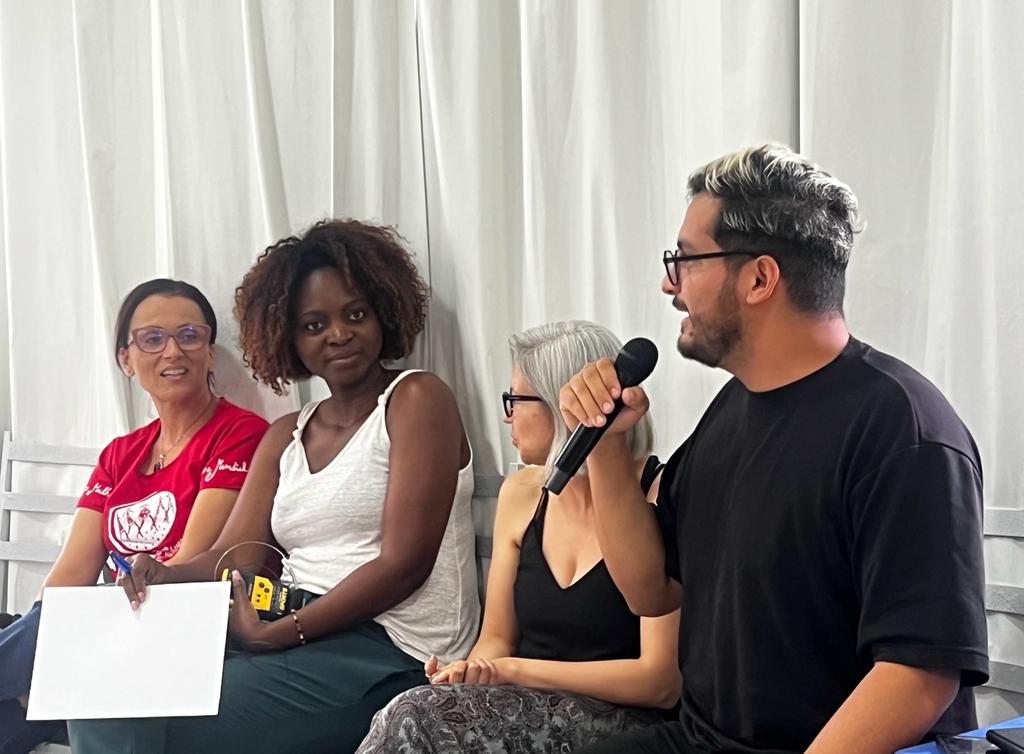
Geovanny Enriquez, a participant from Ecuador who is also the National Programme Coordinator of the JP GTA, underscored Ecuador’s National Agricultural Strategy for Rural Women of the Ministry of Agriculture and Livestock, which has received technical support from international cooperation agencies. “The results have been favorable for rural women and their families. However, there are still social norms that impede access to capacity building and productive and financial resources. It is essential to elevate the Strategy to the level of public policy, with an indefinite time frame and dedicated budget, to drive improvements in family farming,” he said.
Alongside these presentations, 18 other delegates – from the countries of Argentina, Brazil, Chile, Colombia, the Dominican Republic, Mozambique, Nicaragua, Peru, and Sao Tome and Principe – presented proposals with gender transformative approaches. Through their proposals, they seek to change discriminatory social norms to boost the leadership of rural women, trigger inclusive rural development, and improve rural food security, nutrition and sustainable agriculture.
Image credits: ©FAO/Andrea Vera
Contacts:
- Fiona Funke, Knowledge Management & Communication Specialist, JP GTA: [email protected]
- Andrea Vera, Asistente Comunicación, JP GTA Ecuador: [email protected]
- [email protected]







